Microservices Introduction
Justin Lee - Technical Evangelist
E: triplez@justinlee.sg
T: @triplez82
Agenda
- Building Monolithic App
- Introduction about Microservices
- Characteristics of Microservices Architecture
- Benefits and Drawbacks of Microservices
- Demo of implementing a Microservices Architectured App on Bluemix
Building Monolithic App

What's Great with Monolithic App
* Simple to develop
* Simple to test
* Simple to deploy
* Simple to scale
What's Bad with Monolithic App
* App is overwhelmingly complex. Fixing bugs and implementing new features become difficult & time consuming
* The development will be slow down due to app size
* Very hard to do continuous development (which has been become the new norm in modern SaaS business)
* Difficult to scale when different modules have conflicting resource requirements
* Reliability is an issue i.e a memory leak could impact entire app
* Extremely difficult to adopt new frameworks & technologies
What is Microservices
What is Microservices
Microservices are small, autonomous services that work together


Scale Cube
Characteristics of Microservices
1. Small and focused on doing one thing well
* Single Responsibility Principle
Gather together those things that change for the same reason, and separate those things that change for different reasons.

Characteristics of Microservices
2. Autonomous
* Separate entity, can be deployed on isolated "machine"
* Be able to change independently
"Can you make a change to a service and deploy it by itself without changing anything else?"
* Each service expose an API and communicate via API
Characteristics of Microservices
3. Language Neutral
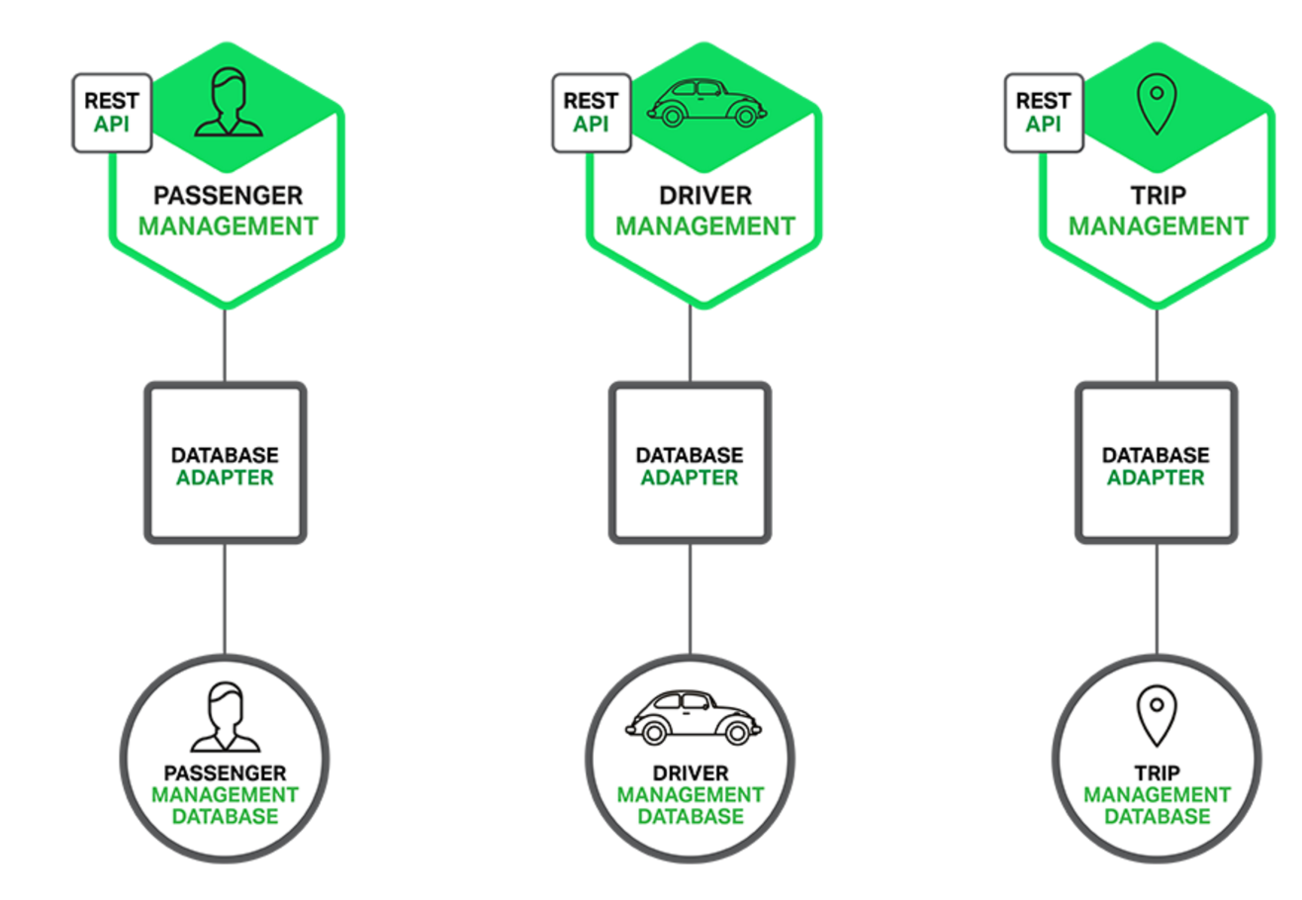
NodeJS
Redis
MongoDB
Ruby
Ruby
MongoDB
App Re-Architected as Microservices
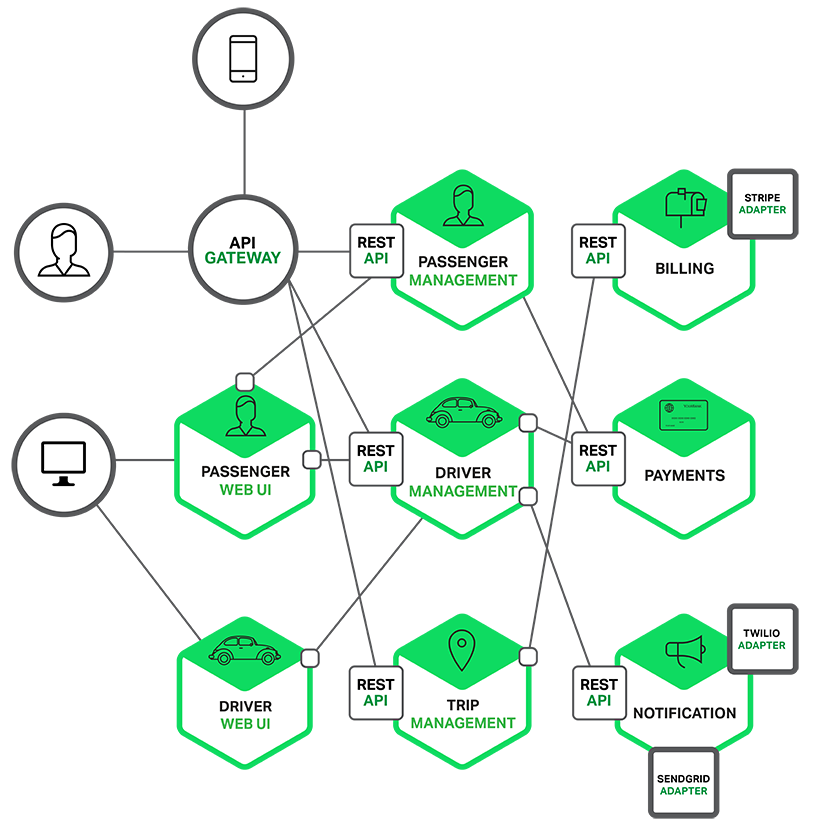
Benefits of Microservices
1. Technology Heterogeneity
* Pick the right tool for each job
* Able to adopt new technology more quickly

Benefits of Microservices
2. Resilience
* Concept of bulkhead
* We can build system handle total failure of services
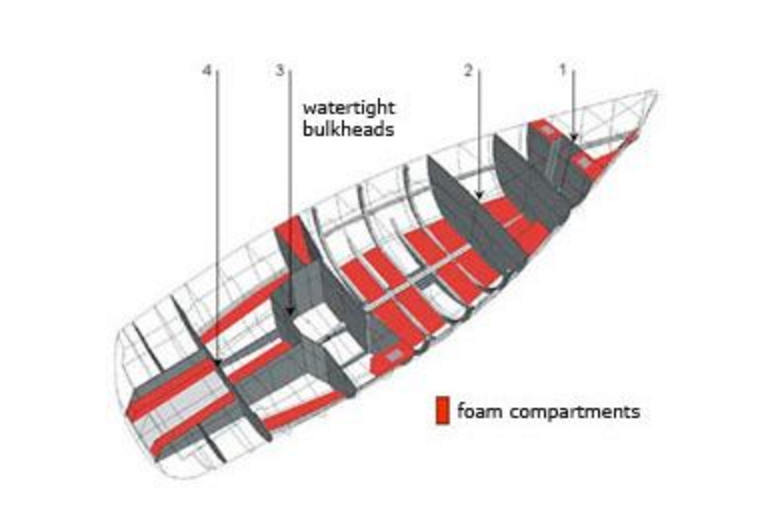
Benefits of Microservices
3. Scaling

Benefits of Microservices
4. Ease of Deployment
* Changes can be made to services & deployed independently
* Faster to rollback in case of failure
* Get new functionality to client faster
Benefits of Microservices
5. Organizational Alignment
* Smaller team working on smaller codebases tend to be more productive
* Able to align architecture to organization
* Able to shift ownership of services to teams who are collocate
Benefits of Microservices
6. Composability
* Functionality can be consumed in different ways for different purposes
Benefits of Microservices
7. Optimizing for Replaceability
* Easier to manage the cost of replacing / deletion of services due to its small in size
Drawbacks of Microservices
1. Significant Operations Overhead
* You need a mature operations team to manage lots of services, which are being redeployed regularly.
Drawbacks of Microservices
2. Distributed System Complexity
* Lots of remote procedure calls, REST APIs or messaging to glue components together across different processes and servers.
* Which inter-process communication mechanism to choose?
* Have to concern about Network latency, fault tolerance, message serialisation, unreliable networks, asynchronicity, versioning, varying loads, etc
Drawbacks of Microservices
3. Asynchronicity is Difficult
CAP theorem - you can pick only 2 of these in a distributed system
* Consistency (all nodes see the same data at the same time)
* Availability (a guarantee that every request receives a response about whether it succeeded or failed)
* Partition tolerance (the system continues to operate despite arbitrary partitioning due to network failures)

Demo of Microservices App on Bluemix
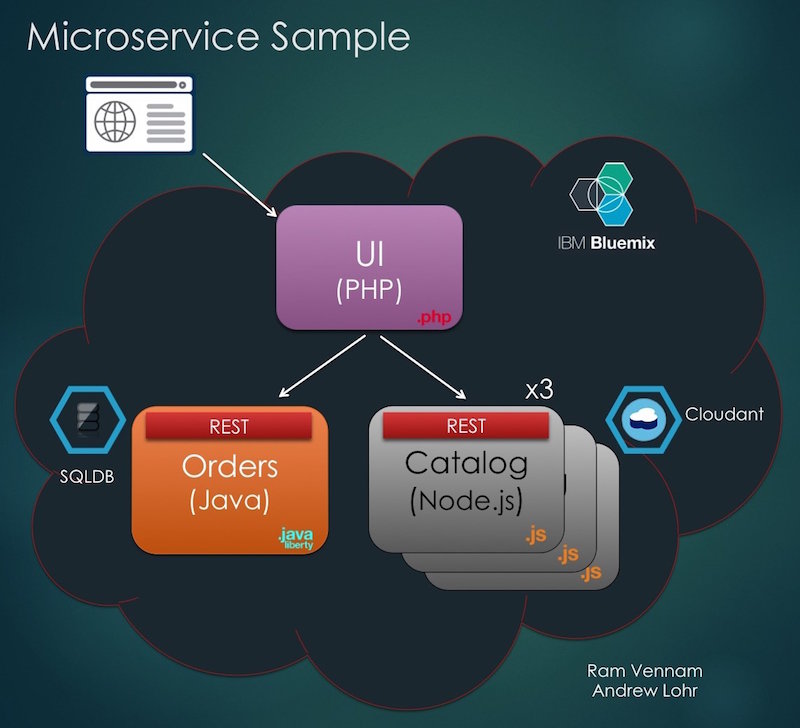
Demo of Microservices App on Bluemix
Catalog App
* A backend RESTful API to keep track of all the items in the store.
* Developed using Node.js with Express framework. The catalog of items will be persisted in a Cloudant database.
* Node.js is selected due to it’s non-blocking, event-driven I/O, it’s ability to handle many requests, and for the use of a non-relational database for our catalog of items.
Demo of Microservices App on Bluemix
Catalog App
http://microservices-catalogapi-sonlethanh-165.mybluemix.net/
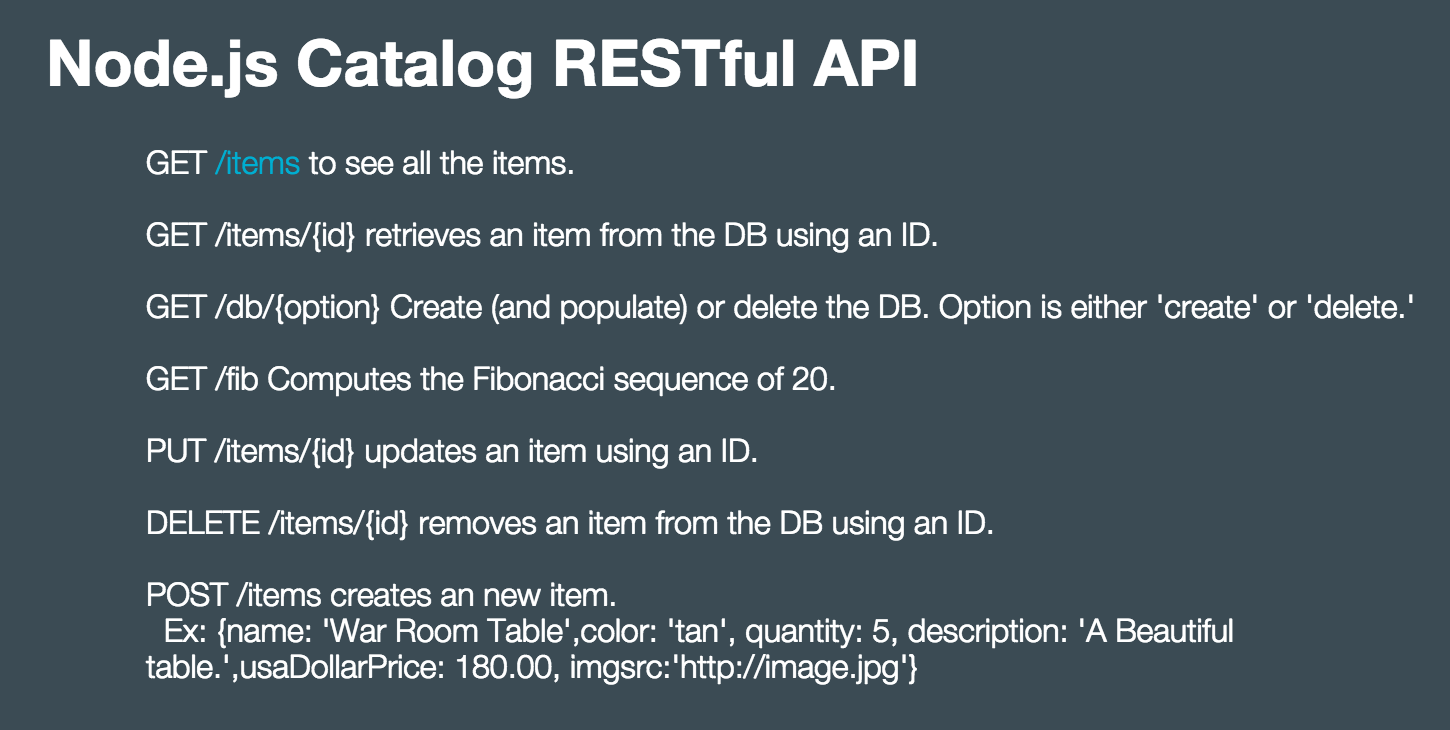
Demo of Microservices App on Bluemix
Orders App
* A backend RESTful API to keep track of all store orders.
* Implemented this using Java JAX-RS and use JPA to store the orders in a SQL Database.
* Java EE is selected due to the nature of this application handling customer orders and potential billing information, failures are not acceptable for this service and security is our utmost importance.
Demo of Microservices App on Bluemix
Orders App
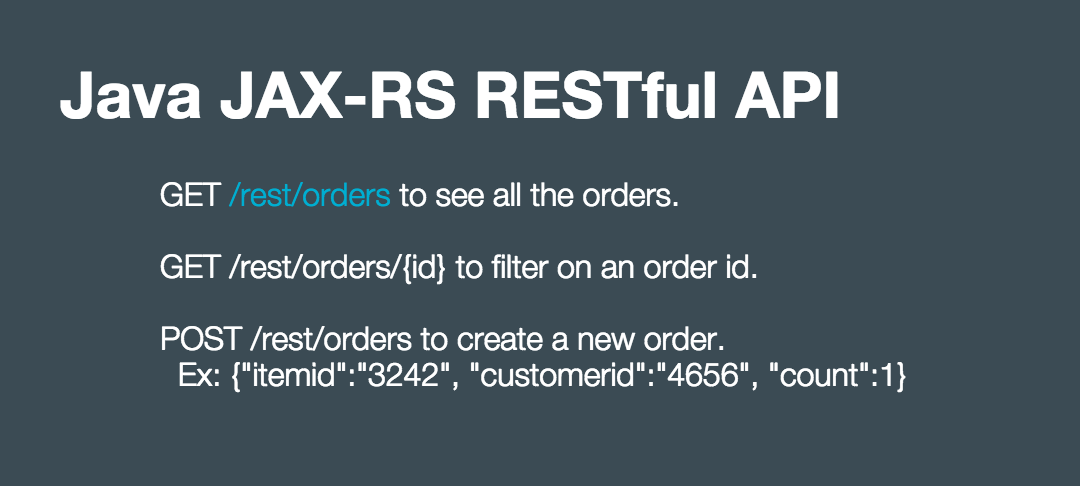
http://microservices-ordersapi-sonlethanh-166.mybluemix.net/
Demo of Microservices App on Bluemix
UI App
http://microservices-ui-sonlethanh-1613.mybluemix.net/
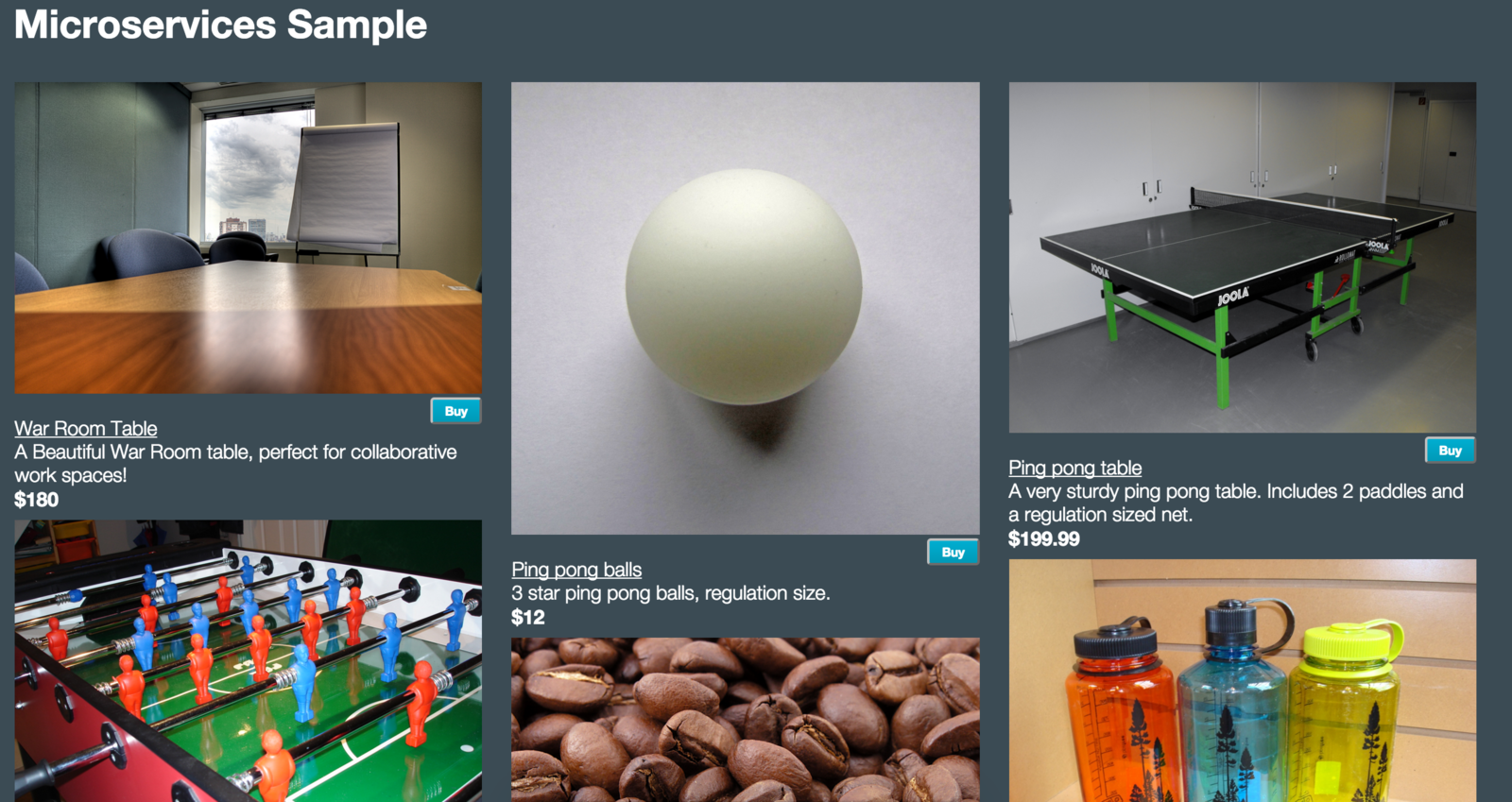

http://bit.ly/BluemixMeetup7Survey
Microservices Introduction
By triplez
Microservices Introduction
- 1,393


